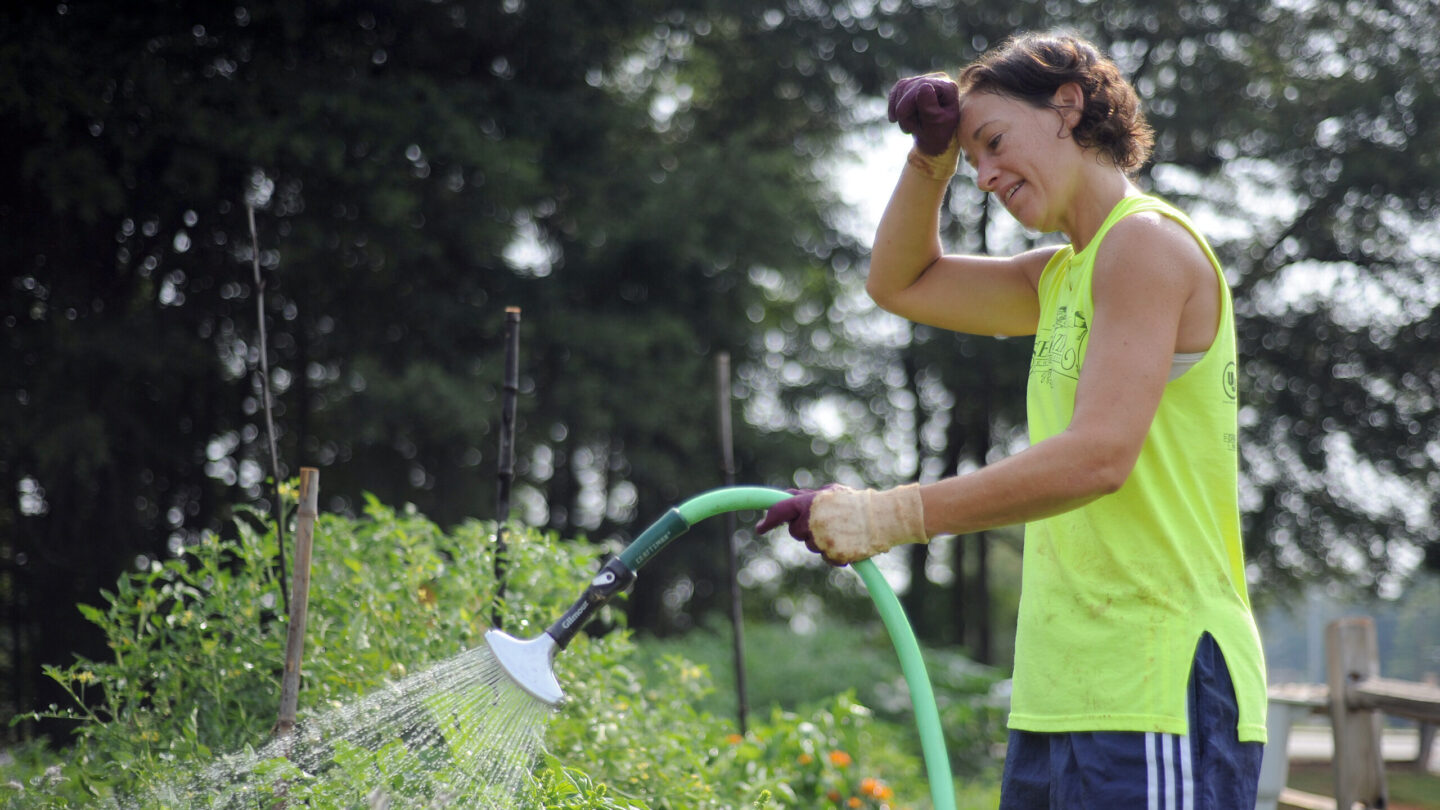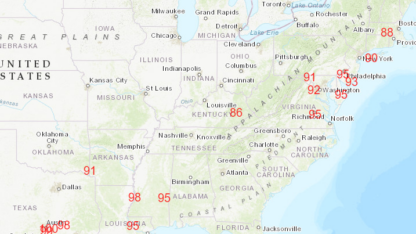Georgia officials raise health concerns over heat wave

The heat wave parked over Atlanta and a large part of the rest of the country is expected to continue through the rest of the week.
Officials in Georgia are warning people to be aware of the dangers of heat, which is one of the leading weather-related causes of death in the U.S., according to the National Weather Service.
At the Georgia Department of Public Health board meeting on Tuesday, commissioner Kathleen Toomey said she’s concerned about hospital capacity.
“There’s just extraordinary health impact of this kind of weather after what was a relatively mild spring,” she said. “This is a significant impact on our hospitals as well when you have this number of people coming in with heat-related complications.”
The most at-risk from heat are elderly people, infants and children, people with chronic health conditions or who are pregnant, outdoor workers and people with low incomes who don’t have — or can’t afford to run — an air conditioner.
Health officials recommend that people familiarize themselves with the symptoms of heat-related illness and check in on neighbors and others who are vulnerable.
Climate change is making heat waves more frequent and more intense. The average summer temperature in Atlanta is almost three degrees higher now than it was 50 years ago, according to the nonprofit Climate Central.
Nights are also getting warmer here, which is dangerous because cooler nights are usually when people’s bodies recover from very hot days.
The urban heat island effect compounds the effects of warming. The concrete and buildings of cities make them hotter, and neighborhoods without tree cover — often poorer neighborhoods and neighborhoods of color — are typically the hottest.
On Tuesday, Francesco Rocca, president of the International Federation of Red Cross and Red Crescent Societies, called attention to heat waves happening in the U.S. and other parts of the world.
“Of all weather-related disasters, heat waves are one of the most deadly facing humanity,” he said. “I call heat waves the silent killers of climate change, because their devastation is hidden, unlike a flood or a big storm, and the casualties are vastly under-counted.”
The casualties are also often preventable.
The Georgia Department of Public Health shares these tips on how to stay safe in the heat:
- Wear light-colored, loose-fitting clothes
- Stay in the AC as much as possible. If you don’t have AC at home, visit a friend who does, or go to the mall or a library or somewhere else where it’s cool. Even a few hours in the AC can give you time to recover before going back out into the heat.
- Electric fans help — to a point. Once it gets over 90 degrees, a cool bath or shower is better.
- Don’t leave any humans or pets in a parked car, even if the windows are cracked. Call 911 if you see someone locked in a hot car.
- Avoid using appliances that can make your house warmer, like the oven or stove.
- If possible, limit your outdoor activity to the morning and evening.
- Cut back on exercise, take more breaks and stay hydrated.
- When you’re outside, wear a wide-brimmed hat, sunglasses and SPF-15 or greater sunscreen.
- Drink lots of water even before you get thirsty
- Check in at least twice a day on people who are working in extreme heat, or who are vulnerable to heat illness.
- If you have pets outside, make sure they have access to fresh cold water and shade. Shade from tarps or from trees is the best; a doghouse can make the heat even worse, since it limits airflow.








